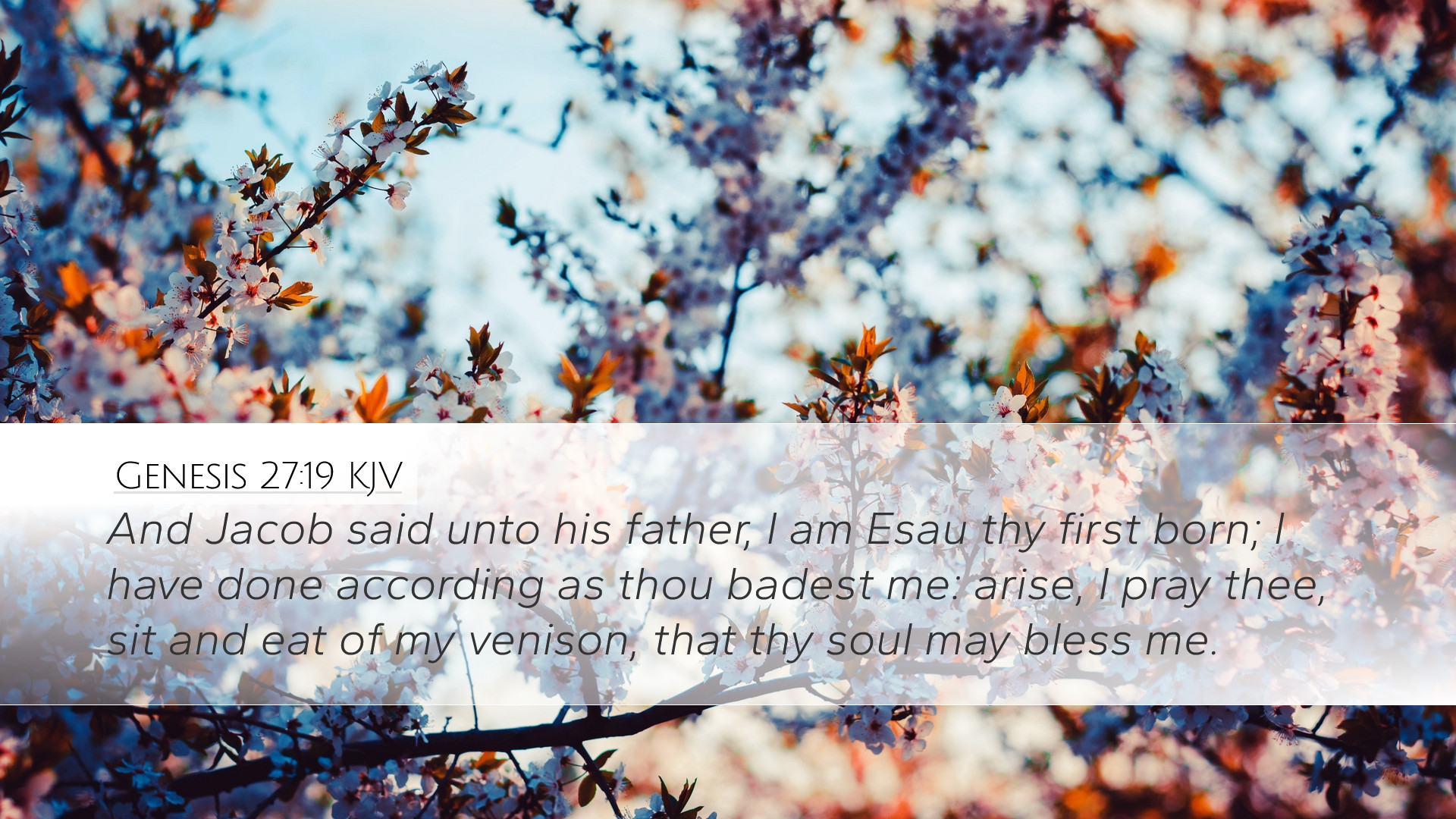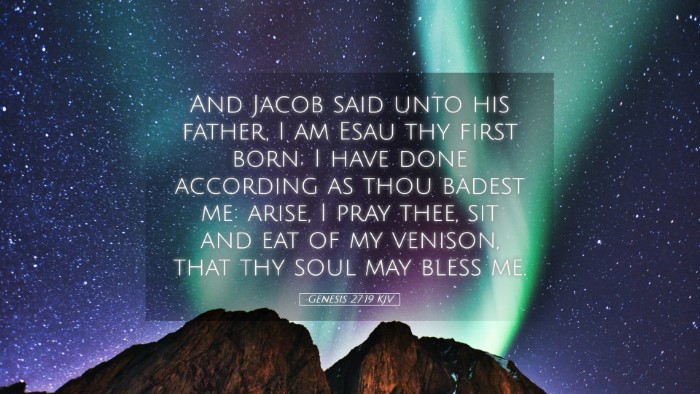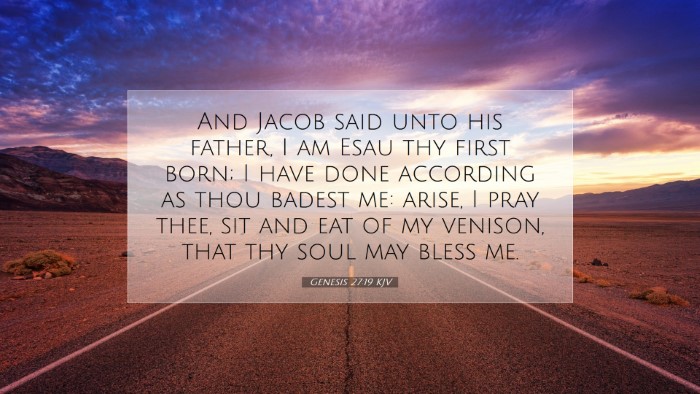Commentary on Genesis 27:19
Verse: "And Jacob said unto his father, I am Esau thy firstborn; I have done according as thou badest me: arise, I pray thee, sit and eat of my venison, that thy soul may bless me."
Introduction
This pivotal moment in Genesis 27 encapsulates themes of deception, familial discord, and the profound implications of spiritual blessings. The act of Jacob posing as Esau highlights the complicated interplay of divine sovereignty and human agency. The insights drawn from the public domain commentaries provide depth to the understanding of this profound scriptural event.
Contextual Overview
The narrative unfolds within the backdrop of a family divided. Isaac, the patriarch, is intent on blessing his elder son, Esau, unaware of Jacob's cunning plan. The historical context and the familial dynamics are crucial for understanding Jacob's actions and the implications of his words.
The Significance of the Blessing
Albert Barnes emphasizes the weight of the paternal blessing within ancient Hebrew culture, where it was believed to confer not merely a fortune but also divine favor. The blessing carried with it the essence of one’s destiny, which raises the stakes of Jacob's deceit.
Exegesis of the Verse
Jacob's declaration, "I am Esau thy firstborn," reveals dual dimensions of his character: the audacity of his ambition and the depth of his familial allegiance. The phrase "I have done according as thou badest me" illustrates a feigned compliance to Isaac's desires, further reinforcing the theme of deception.
The Deception Explained
Matthew Henry highlights that Jacob's deception indicates a strategic fulfillment of God's promise made earlier regarding the preference of the younger over the elder (Genesis 25:23). However, it also unveils Jacob’s and Rebekah's moral complexity in their pursuit of divine blessing.
Human Nature and Divine Will
Adam Clarke provides an insightful examination into human nature, suggesting that Jacob’s actions aren’t simply those of a cunning man. Instead, they reflect a struggle to claim what he believed was inherently his. This poses significant questions about the interplay of divine sovereignty and human effort in achieving God’s purposes.
Theological Implications
The incidents surrounding the blessings depict the tension between God’s providence and human choices, prompting crucial theological reflections.
Divine Election
This narrative signifies the doctrine of divine election and predestination, wherein God’s purposes transcend human actions. Jacob’s subterfuge serves as a dramatic backdrop for understanding God's sovereignty, as reflected in Paul’s reference in Romans 9:10-13, stating, "the elder shall serve the younger."
Morality of Deception
Despite the theological insights, the morality of Jacob’s deceit raises ethical questions. Should we consider Jacob a figure of faith, or does his manipulation undercut his role as the chosen heir? Different interpretations arise, with Barnes arguing that God’s blessing does not condone moral laxity, while Henry suggests that divine blessings often come through flawed vessels.
Lessons for Believers
The narrative of Jacob and Isaac serves as a cautionary tale for believers. It evokes discussions about integrity, faith, and the means by which we pursue God’s will.
- The Consequences of Deception: The aftermath of Jacob's actions sets the stage for significant familial strife, reflecting the ripple effect of deceit.
- God’s Sovereignty: Believers can find reassurance in the understanding that God’s purposes will prevail, even amidst human frailty and failures.
- Integrity in Pursuit of Blessings: It prompts reflection on the means we use in pursuing God’s favor; are our actions in alignment with God’s moral commandments?
Conclusion
Genesis 27:19 encapsulates a rich tapestry of familial drama, human weaknesses, and the profound mysteries of divine providence. Through the lenses of public domain commentaries, scholars can appreciate the intricate narrative that instructs on faith, morality, and the lengths to which individuals will go in seeking God's blessings. The complexities of the characters compel us to introspect our own journeys of faith, action, and divine intent.


